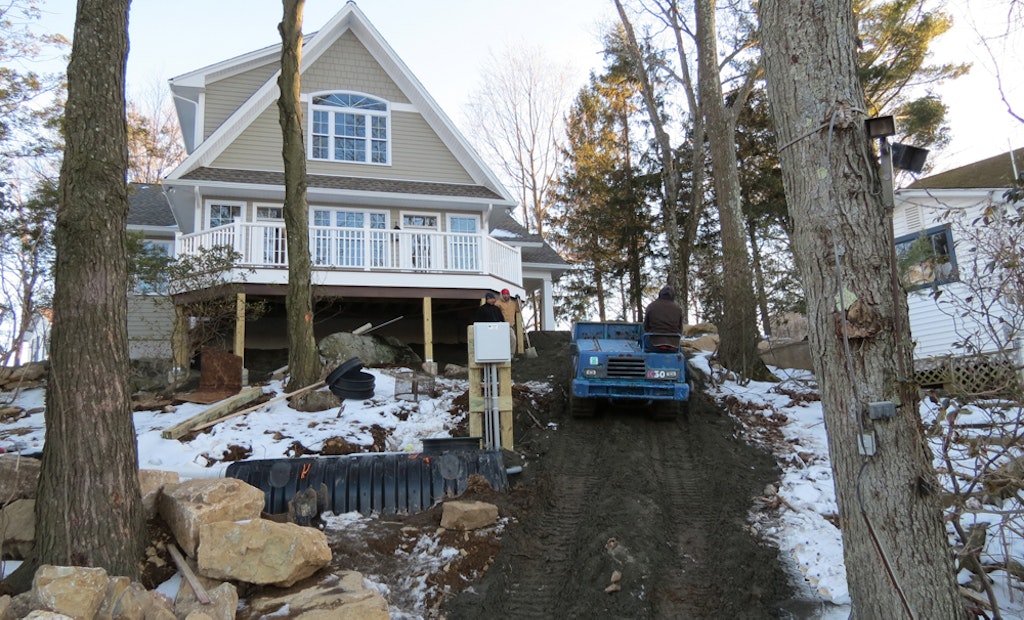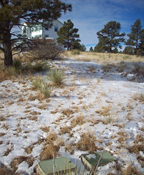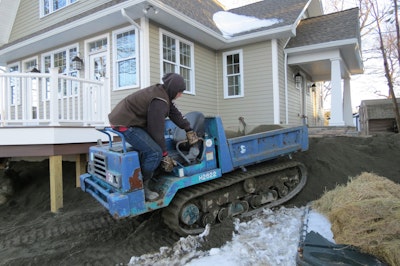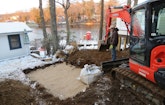
Interested in Education/Training?
Get Education/Training articles, news and videos right in your inbox! Sign up now.
Education/Training + Get AlertsYou probably get this question a lot from homeowners as temperatures drop in the northern states: “Are there things I need to do to get my system ready for winter?”
Your response should be: If the system was installed properly and everything is in good working order there is not a lot that needs to be done before winter arrives.
However, here are a few items that you should remind homeowners to consider and take action as necessary.
Baby it’s cold outside
If there is any maintenance of the system that has been put off, now is the time to have it done. If the septic tank needs pumping, it should be pumped. If there is a pump station in the system, now would be the time to have the pump tank checked for any solids, and the floats and pump evaluated to make sure they are in good working order.
Christmas Day is not the time for homeowners to be calling you to replace a faulty pump. If it’s not working right now, you can assure homeowners when the temperature drops it is almost guaranteed not to work.
Once over

Suggest repair or replacement of any damaged riser lids, and recommend lid insulation. And give the drainfield area a once over inspection for surfacing or ponding, so it can be remedied before winter.
If you recently installed a new onsite system that lacks established vegetative cover, use straw over the area to help insulate the system. Some of the best insulation is provided by the soil itself and the growing vegetation. If vegetation is not established the surface will cool faster and allow frost to penetrate deeper. Vegetation captures and holds snow over the system. Snow is also a very good insulating material. Assure the homeowner that straw also helps in the spring when snow begins to melt but it is still relatively cold.
For residences that will be used intermittently, make sure homeowners do something to hold heat in so the system doesn’t freeze. If you’re installing a system at a seasonal home, make sure to insulate the septic tank to prevent freezing.
In my home state of Minnesota, installers insulate septic tanks and pump stations automatically due to the drastic drop in temperatures. Part of this is because of the length of time we have snow cover and changing demographics mean the population is older and more likely to head to a warmer climate for part of the winter so homes with onsite systems are left unattended for months.
If a homeowner calls with an established system that has not been insulated, and they are wondering what they can do because they are leaving for the next three months, a temporary solution is to install a tank heater in the septic tank. This is not a substitute for use, so another suggestion would be that the homeowner have a neighbor, family member or friend use the system by running the washing machine or dishwasher once a week while they are away. It is also a good time to suggest that the long-term solution is insulating the tank.
Educating homeowners on these issues will ensure you don’t get that emergency call on Christmas Day or New Year’s Eve when you’re just about to sit down for a nice family dinner. What other things should be done to prepare homeowners for the long winter ahead?
About the Author

Jim Anderson is connected with the University of Minnesota onsite wastewater treatment education program and is an emeritus professor in the university’s Department of Soil Water and Climate.
Send him questions about septic system maintenance and operation by email to kim.peterson@colepublishing.com.

How do you ensure homeowners are properly maintaining their onsite systems during cold months? Post a comment below.







